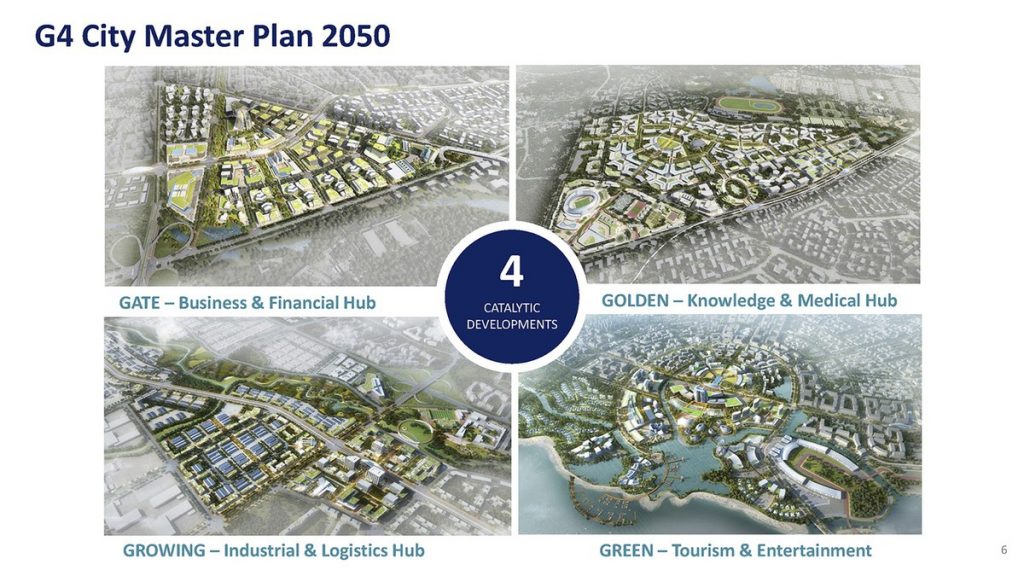
Kazakhstan and Singapore have agreed to develop Smart Cities in the Almaty region.
The G4 City project consists of four Smart Cities located along the Almaty–Ust-Kamenogorsk highway at the section of Almaty–Kapshagay.
The new satellite cities will be built with favorable conditions for business development and for comfort for the average person. The construction of the international airport with direct flights to Singapore is also expected.
The city will have four districts including the Gate District, a business and financial hub, the Golden District, knowledge and medical hub, the Growing District, an industrial and logistics hub and the Green District, a tourism and entertainment hub.
According to the Kazakh Prime Minister’s Office, G4 City will become a new economic hub for Central Asia to increase the growth of foreign investment in the economy of Kazakhstan.
It is expected that 2.2 million people will live in the city by 2050 and more than 1 million jobs will be created.
Currently, engineering networks have been installed in the Gate District and the construction of the residential area is underway.
Approximately 300,000 square meters of housing is planned to be commissioned over the next three years.
Surbana Jurong, a Singaporean government-owned consultancy company, will work on infrastructure and urban development. The company has experience in developing master plans in 30 countries and designing more than 100 industrial parks.
On Sept 29, Kazakhstan’s President Kassym-Jomart Tokayev met the CEO of Surbana Jurong Group Wong Heang Fine to discuss the prospects for the implementation of the investment project.
Mr Tokayev noted the importance of strengthening investment cooperation with Singapore and expressed the government’s readiness to support the project.
According to Singapore’s Non-Resident Ambassador to Kazakhstan Zulkifli Baharudin, in the challenging post-Covid world, Kazakhstan offers Singaporeaans new opportunities.
“I would like to invite more of my Kazakh friends to consider working with Singapore beyond looking at us as a model for benchmarking. There are ample opportunities to do more together, and new areas to explore collaboration, particularly as we transit out of the uncertain post-Covid era<‘ he wrote in an opinion piece.
“We can be key regional transport and transit hubs, including as part of the Belt and Road Initiative (BRI). Kazakhstan could tap Singapore’s excellent connectivity, digitally-ready economy and strong healthcare system, to offer innovative digital and medical solutions in the post-Covid environment.”
Singapore companies such as Surbana Jurong, Meinhardt, Ascott and CrimsonLogic are already operating in Kazakhstan. CrimsonLogic had previously helped launch Kazakhstan’s eJustice system as part of the country’s ongoing drive towards digital transformation.
There are over 130 Kazakh companies operating in Singapore.
“Just as Singapore has become a gateway for foreign companies to launch into Southeast Asia, Kazakhstan can be a node for Singapore companies keen to invest in Central Asia or even the Eurasian market,” said Mr Baharudin.







